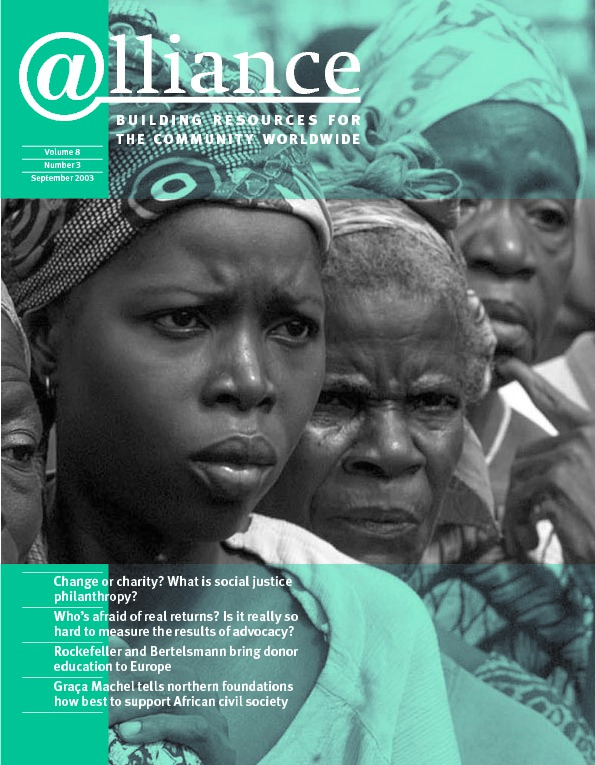There was a time in Latin American politics and social thought when the concept of ‘social justice’ was associated with the redistribution of income and wealth from the richest sectors of society to the poorest. The traditional mechanisms for the transfer of wealth were increases in salaries and wages (with the trade unions as the main advocates for such transfers) and the provision of universal public social services. It was a time when industrialists and the dominant classes still believed in the welfare state.
After decades of military interventions, civil wars and neoliberal economic policies of adjustment, the landscape of Latin American social structures and power relations has changed dramatically. Rising unemployment and poverty, cuts in social services, social exclusion and retrenchment of the state from its basic duties are now the main features that Latin America shares with most of the rest of the so-called ‘developing’ world. Globalization has brought to the surface an awareness about the connections between economic concentration of world income and deprivation for millions of people. The capacity of democratic systems to ‘deliver’ welfare for the majority of the population is under question.
A large number of NGOs all over the world, by their own efforts and with minuscule support from philanthropic organizations, have struggled in recent decades to counter these trends. By helping secure spaces for popular participation and empowerment in communities and society at large, NGOs have made a real contribution to sustaining democracy. Their efforts to cope with adverse macroeconomic trends have been weaker, however, and perhaps beyond their capacities (with obvious remarkable exceptions like the microcredit and social and solidarity economy movement). Within this framework, domestic and international philanthropy has played a role in two main ways: providing direct assistance to cope with multiple and multifaceted crises and helping people find tools, funds, connections and ideas to find their own ways to development.
The tension between these two approaches to philanthropy (assistance vs development in the Latin American debate) is a matter of controversy and discussion among the donor community anywhere. While most corporate foundations embrace the first approach (mainly as providers of financial resources), the large independent foundations have tended to adopt the latter, playing the role of strategic partners.
From my perspective, however, labelling themselves as ‘social change’, ‘transformational’ or ‘social justice’ philanthropies (very different concepts, by the way) stems more from their need to differentiate themselves from the traditions of charity than from what they actually do. The gap between the desire for change and justice that frames the support they provide and the impact of their grants on the macroeconomic and political situation in most of the developing world is enormous. Good intentions and a commitment to positive social change are welcome, and we need much more from philanthropies. But they are not enough to surpass the boundaries of the limited role they can play in achieving social justice, inclusion and peace.
Andrés Thompson is Program Director, W K Kellogg Foundation, Uruguay. He can be contacted at andres.thompson@wkkf.org






Comments (0)